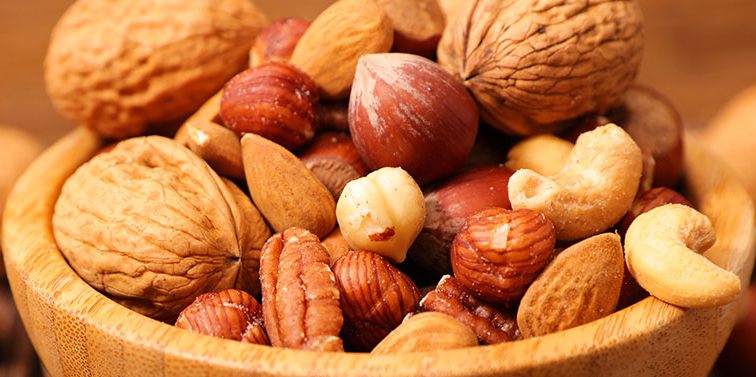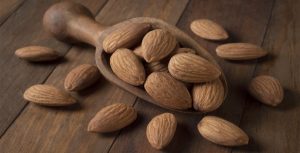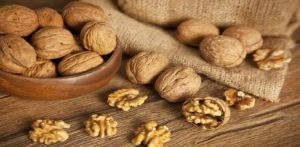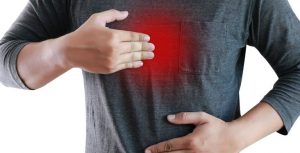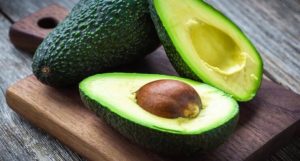The short answer is, yes. Eating nuts may trigger heartburn in some individuals with acid reflux. This is because most nuts are high in fat.
Fat intake is known to trigger acid reflux symptoms, especially when consumed in excess.
Please note that when it comes to acid reflux disease; fat is fat, whether healthy (unsaturated) or unhealthy (saturated-trans fats).
Regardless of the type, fat can induce heartburn in patients with gastroesophageal reflux disease (GERD).
In this article, we will discuss how nut consumption can bring about heartburn in some people with acid reflux/GERD.
Nuts and Heartburn
Nuts are an excellent source of healthy fats and are a great source of protein, fibre, vitamins and minerals. That is why, they are associated with a variety of health benefits [1, 2].
Science confirms that nuts can contribute to human health in many ways when eaten on a regular basis [3, 4, 5].
Despite the many health benefits nuts have to offer, they may give you heartburn if you are prone to it. As mentioned above, this is because nuts are high in fat.
Below we’ll explain in detail how fat ingestion can affect acid reflux. This will in turn tell us how nuts — loaded with fat — may lead to heartburn.
It is, however, important to note that whether nuts trigger heartburn in you heavily depends on which nuts you eat. Because nuts differ from each other in the amount of fat they contain. Here is an example…
According to the U.S. Department of Agriculture:
- 100 gr walnuts contain around 65 gr total fat
- 100 gr pistachios contain around 45 gr total fat
Evidently, walnuts are fattier than pistachios; therefore, they are more likely to trigger heartburn compared to pistachios. Chestnuts, for instance, contain very little fat. So, they shouldn’t be associated with heartburn.
Another factor is how many nuts you eat at one go. If you eat a small handful of nuts, it is less likely nuts aggravate or trigger acid reflux symptoms in you.
Firstly, we’ll briefly explain acid reflux disease. Then we will go into more detail on how nut consumption may affect acid reflux symptoms.
Note: If you are a healthy person who normally doesn’t experience acid reflux, then there is nothing to worry about. Because eating nuts won’t cause you to develop acid reflux disease!
Acid Reflux & GERD
Acid reflux occurs when stomach acid flows back up into the food pipe, in other words, the esophagus [6].
Normally, the Lower Esophagal Sphincter (LES) — a bundle of muscles located at the lower end of the esophagus — prevents stomach acid from moving upward.
However, LES sometimes malfunctions and doesn’t close properly. When it happens stomach acid can flow back up into the food pipe, causing some symptoms, most commonly heartburn [7].
Everyone can experience acid reflux at some point in life and it is quite normal. Yet, some people experience the symptoms constantly [8].
According to the Cleveland Clinic: Having heartburn more than twice a week over a period of several weeks may indicate GERD (Gastroesophageal Reflux Disease or Chronic Acid Reflux).
Acid Reflux and Diet
When left uncontrolled, GERD can lead to serious complications, such as barret esophagus [9, 10].
As per medical professionals; one of the most effective ways to control GERD is to eliminate or reduce the intake of foods that trigger acid reflux symptoms [11, 12, 13].
People with acid reflux respond differently to foods. That is to say, everyone has different food triggers.
In general; acidic foods, spicy foods, caffeine, alcohol and fatty foods are the common heartburn triggers.
We will now explain how fat intake affects acid reflux symptoms. That will in turn help us understand how nuts ( which are typically high in fat ) may induce heartburn in those who are prone to it.
How Fatty Foods Trigger Heartburn
In two ways, high-fat foods (including the foods we consider healthy, such as avocados, nuts or cheese) contribute to acid reflux.
Firstly, fat stays in the stomach relatively longer than other nutrients such as protein and carbohydrates. This delays the emptying of the stomach and causes more gastric acid to be produced in the stomach [14, 15, 16].
The more acid there is in the stomach, the more chance it can flow back up to the food pipe, causing heartburn.
Secondly, fatty foods (or fat) can cause LES to relax, according to studies, [17, 18, 19].
As mentioned earlier, LES is a valve-like muscle that prevents stomach acid from going back up the food pipe.
Consumption of fatty foods triggers the release of a hormone called cholecystokinin (CCK). And, studies suggest that the CCK hormone can cause the lower esophageal sphincter (LES) to relax [20, 21, 22, 23].
It bears repeating that when LES muscle relaxes when it shouldn’t, stomach acid can travel up into the throat and thus can bring about heartburn.
In fact, scientists are still trying to understand which types of fat may aggravate GERD symptoms.
It appears that even “good” fats that exist in healthy foods such as avocados, nuts or egg yolks may trigger or worsen acid reflux symptoms.
Which Nuts More Likely to Cause Heartburn
We now know that as nuts are high in fat they may induce heartburn, especially when consumed too much.
As mentioned above, nuts are different from each other in the amount of fat they contain.
The list below shows how much fat nuts contain in every 28 grams. Through the list, you may find out how fatty your favourite nuts are.
According to the U.S Department of Agriculture: twenty-eight (28) grams or 1 ounce:
- Cashews have 12.4 grams of total fat
- Pistachios have 12.8 grams of total fat
- Peanuts have 13.9 grams of total fat
- Almonds have 14.1 grams of total fat
- Hazelnuts have 17.2 grams of total fat
- Walnuts have 18.5 grams of total fat
- Brazil nuts have 19 grams of total fat
- Pecans have 20.4 grams of total fat
What to Do If Nuts Give you Heartburn
If you somehow figured out that nuts are giving you heartburn, then you can:
- convert to smaller portions and eat the same amount throughout the day instead of eating at one go
- avoid eating them close to bedtime
- eat fewer nuts than you normally do
- choose nuts that are relatively lower in fat such as pistachios
- take a walk after eating nuts to speed digestion
Applying these methods may help you consume nuts without experiencing heartburn.
Conclusion
Many foods that we consider “quite healthy” can trigger acid reflux symptoms; tomatoes, garlic, onion, avocados or citrus fruits can be given as examples.
Nuts are indeed one of these foods. They can improve many aspects of your health; nevertheless, they may give you heartburn.
If you usually feel a burning sensation in the centre of your chest after eating nuts, it is likely that nuts — which are high in fat — are a heartburn trigger for you.
However, eliminating nutritious nuts from your diet may not be a good idea; because you may replace them with other snacks which have poor nutritional value.
For this reason, instead of removing nuts from your diet, consider eating them in small quantities.
Considerations
Bear in mind, if you experience heartburn more than 2 days a week, for several months, you may have developed GERD.
If this is the case, we strongly recommend you work with your doctor to determine the best treatment.
If you have heartburn at night, consider sleeping on your left.
